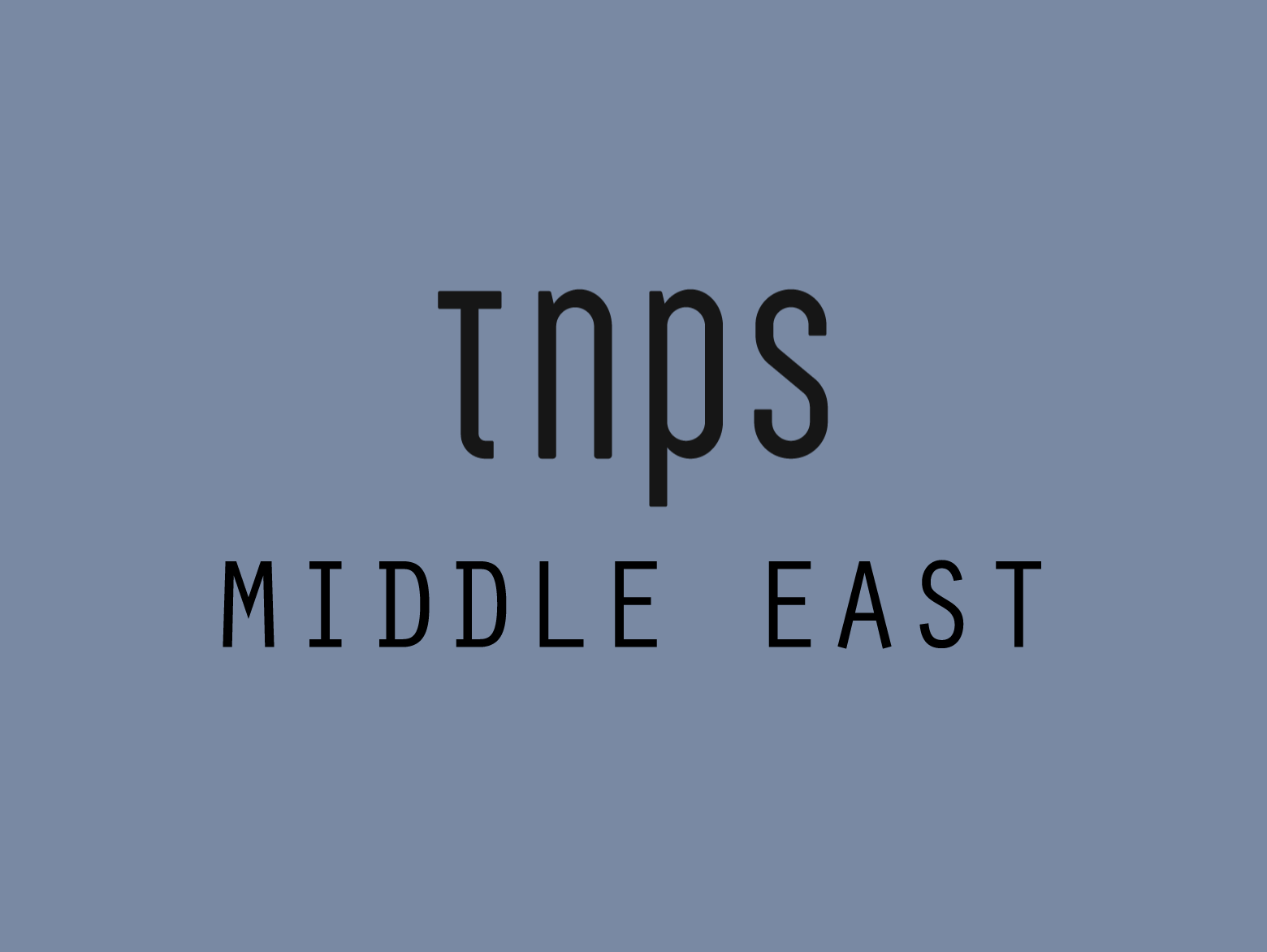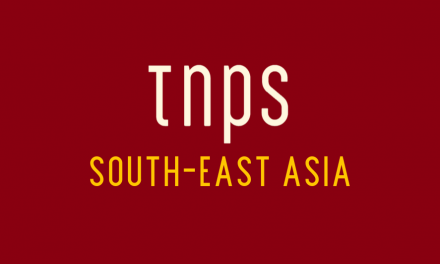“Read. Empower. Transform: The role of reading for the future of the Arab world” is the title of a newly announced two-day IPA (International Publishers Association) Regional Seminar that will be taking place in the Jordanian capital Amman Sept 30-Oct 1.
Organised in conjunction with the Union of Jordanian Publishers the event, described as “the first of its kind”, will,
take a fresh look at the publishing industry in the region and worldwide to answer the pivotal question— How can reading change the course of history?

There are ten panel discussions set, and while all are worthy of our attention, four in particular stand out for their emphasis on the digital opportunity for the region – a topic regulars will know is something TNPS frequently explores. Most recently here:
Before we go any further it’s worth dealing briefly with a popular but demonstrably faux narrative that “Arabs don’t read,” which may lead some to feel the Amman Regional Seminar is a triumph of hope over experience.
Because while it’s true the Arab book markets are less vibrant than those in some other parts of the world, the evidence strongly suggests it is availability, accessibility and affordability, not disinterest, than depresses Arab engagement with books.
The most clear evidence of genuine interest in books, given the chance, comes from the Arab book fair visitor numbers, which are among the highest in the world.
Egypt leads the way, as the world’s biggest public-facing book event, regularly attracting many millions of eager booklovers.
Books, Pyramids and Sun. The world’s biggest book fair will be 50 in January. And yes, it’s in Egypt
Two other Arab book fairs regularly attract more than two million visitors each.
A million people attending an Arab book fair is fast becoming commonplace.
Oman’s Muscat International Book Fair clocks over 1 million visitors for second year running
While across MENA book fair attendance just keeps on growing.
As western publishers look the other way millions attend Arab book fairs in February
Iraq’s Baghdad International Book Fair clocked 1 million visitors this year, just weeks after Iraqi Kurdistan’s Erbil Book Fair saw 400,000 visitors.
Of course one reason book fair attendance is so high is that the choice of affordable books is less than satisfactory across the region the rest of the year, due to the understandable limitations of brick & mortar distribution infrastructure in a region with such challenging topography.
That inhibits book production and inhibits book imports from the wider world such as might stimulate reading interest still further.
That’s where digital offers real hope for the region, which has over 200 million Arabic-speakers online, and enormous room for growth.
Full details of the Amman Regional Seminar can be found in this PDF presentation issued jointly by the International Publishers Association and the Union of Jordanian Publishers.

Here to take a brief look at the ten panel discussion to take place, and then a closer look at those with a digital focus.
The ten panel discussions are:
- Digital Disruption: Solving The Arab World’s Book Distribution and Retail Challenges with Technology
- The Role of the Publishing Industry in Humanitarian Response and Refugee Resettlement
- Literacy and Book Accessibility in Conflict
- The Role of Technology in Overcoming Illiteracy and Promoting a Reading Culture
- Digital Publishing and the Arab Classroom of the Future
- Building a Creative Nation: Developing the Next Generation of Publishers, Writers, and Artists
- Bringing the Voice of Arab Writers, Publishers, and Content Creators to the World
- The Future of Arab Libraries: Transforming Libraries from Print to Digital
- Freedom to Publish and New Media
- Towards an Arab Digital Single Market: Does the Arab World Need its Own Copyright Directive?
Taking a closer look at those that have a digital focus:
Panel Discussion 1: Digital Disruption: Solving the Arab World’s Book Distribution and Retail Challenges with Technology
With the rapid rise of the digital economy and the region’s embrace of e-commerce, distribution intermediaries are becoming less important as brick-and-mortar retail strategies are eclipsed by e-commerce. The dawn of the digital economy will mean that the publishing chain will need to rethink distribution; evolve direct-to consumer content creation models; and serve the increasingly digitally-connected multi-channel buyers. This session brings together publishing stakeholders to build consensus on where the industry is headed and how the publishing ecosystem can work together to create new value in the digital economy.
As we said way back in May 2018, the Middle East digital genie is out of the bottle.
Panel Discussion 4: The Role of Technology in Overcoming Illiteracy and Promoting a Reading Culture
The region now faces two immense challenges in the digital age: eradicating illiteracy and implementing reading strategies and policies that cultivate national cultures of reading. Technology-based literacy training programs hold significant potential in addressing illiteracy, yet many Arab countries are resistant to transitioning to the digital era; many more have not formulated policies for the integration of existing technology into adult literacy programs. This session will discuss promising new approaches in leveraging technology to address illiteracy, and how to catalyse collective action by the publishing industry, policymakers, non-profits, and aid agencies to develop national cultures of reading.
Across North Africa and the Middle East there is a perception of low literacy and indifference to books, and of course the two go together. Leveraging technology – digital in other words – offers the best hope to solve these problems in a region where the print distribution infrastructure, whether for retail or education, is especially challenging
Panel Discussion 5: Digital Publishing and the Arab Classroom of the Future Against this backdrop of rapid regional digitisation, the global textbook industry is being disrupted by digital publishing. Classrooms are being turned on their head by technologies that enable more personalised and immersive learning experiences. Digital publishing and technologies like artificial intelligence have significant potential to bring changes and reforms to classrooms and regional education systems to meet the needs of the 4th Industrial Revolution. This session will focus on how governments, the publishing industry, and educators can work together to embrace digital publishing and classroom technologies that can enable education innovation which can leapfrog regional educational reform progress and outcomes.
In the run-up to the IPA Seminar in Nairobi earlier this year TNPS took a look at how digital is transforming education prospects in Arab North Africa.
Panel Discussion 7: Bringing the Voice of Arab Writers, Publishers, and Content Creators to the World As global readers actively seek original, distinctive writing and diverse narratives, national markets are booming worldwide. Evolving consumer demand for more diversity is a trend that Arab writers, publishers, and the broader creative industries cannot afford to miss out on. Yet, despite the launch of several initiatives, grants, and awards, the Arab World has been less successful in getting Arabic publishing and cultural products in the hands of global consumers than other countries facing similar challenges accessing global markets. This session will explore how Arab writers, publishers, and cultural creators can benefit from surging global demand for more diverse cultural products.
The global potential of Arab literature and related content is something we’ve covered at TNPS many times.
Panel Discussion 8: The Future of Arab Libraries: Transforming Libraries from Print to Digital
To stay relevant in the digital age, libraries will need to transition from lending books to becoming economic incubators, cultural hubs, and experiential learning centres. They will likely to evolve into a hyper-connected, creative space that serves as a gateway to digital citizenship; where users will go to co-create and experience the future. Several technologies and trends are already shaping the library of today including bookless libraries, augmented reality, and e-lending. This session will discuss the ongoing importance of libraries in the digital age and how they can start a new chapter to retain relevancy.
Digital libraries again are a topic that comes up again and again in TNPS, though nor as frequently as we’d like with a MENA angle.
Dubai Audio Library “the largest Arabic audio library in the world”
The IPA Seminar in Amman will be held under the patronage of Her Majesty Queen Rania Al Abdullah, so we can be sure the twin issues of reading and publishing are being taken seriously at the highest levels, leaving the question how willing Jordan and the other Arab markets will be to the digital transition.
In that respect Jordan is ahead of some other countries in the region and is no stranger to book-related e-commerce. Jordan’s online bookstore Jamalon is probably the largest online book store in MENA. Earlier this year Jamalon raised $10 million in new funding –
and struck a deal with Storytel last September.
Sweden’s Storytel Arabia partners with Jordan’s Jamalon to expand MENA audiobook reach
Storytel of course is just one of many digital books players in the region, competing in the audiobook sector against the likes of Dhad, Booklava and Kitab Sawti, while several countries – including Egypt and Algeria, have telco-operated ebook stores.
Already worth $1.7 billion, the MENA book market could see rapid growth in the next decade as initiatives like this Seminar from the IPA and the Jordanian Publishers Union help the region’s publishers embrace the digital opportunity.
And let’s not forget that the 2020 IPA Africa Regional Seminar will also be a MENA affair, taking place in Morocco’s Marrakesh.
It’s time to once and for all put an end to the nonsense idea that Arabs don’t read, and to enjoy the ride as the Arab Renaissance flourishes in the 2020s.





